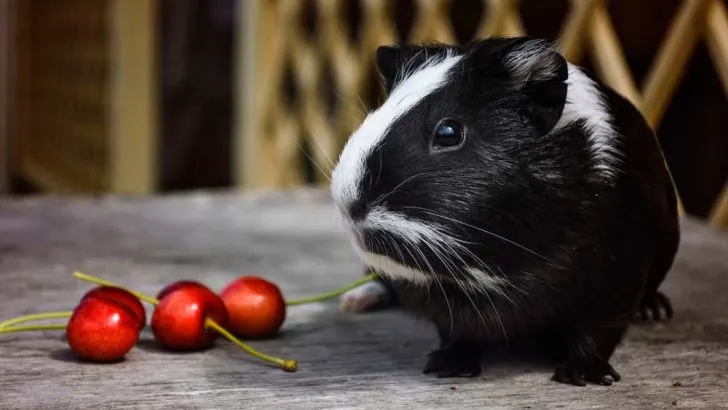Guinea pigs are great “budget” pets. A lot of the food that you typically buy and is often in your fridge or pantry can be fed to guinea pigs.
Most guinea pig owners know this; that’s why they have a tendency to treat their guinea pigs like trash cans. That’s totally understandable; after all, they can’t stop munching on things; at one point, you’re bound to give them anything available.
But what about berries? Will you be hurting your guinea pig by giving it berries, or is it a part of the safe foods group? That’s a question we’ll answer in today’s article.
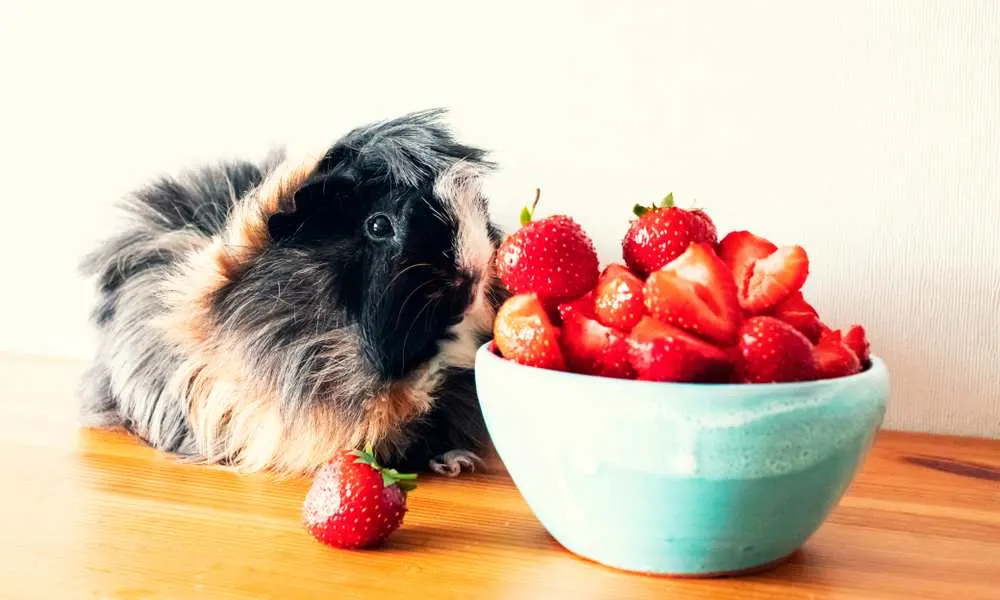
Can Guinea Pigs Eat Berries?
YES, Guinea pigs can eat berries. They can eat any kind of berry that we know of. However, we need to clarify some things first. Some fruits that we will be talking about in this article might have the word berry in them, but that doesn’t mean they are berries in botanical terms.
Strawberries aren’t berries at all, and, on the other hand, deadly nightshade is a type of berry even though it doesn’t contain the word berry in it.
Stay away from deadly nightshade since it’s poisonous. With that out of the way, let’s talk guinea pigs and berries.
Berries
Berries are a small, pulpy fruit. They often have a juicy flavor, are brightly colored, and, depending on the berry, can be sweet or sour. Berries don’t have one big stone or pit but are often full of other, smaller types of pips and seeds.
To save you from any potential confusion, we’ll list only the berries that are safe to eat; if something isn’t on the list, double-check on the internet to make sure it’s safe for your guinea pig to eat.
Berries that your guinea pig can eat:
- Strawberries
- Blueberries
- Elderberries
- Cranberries
- Blackberries
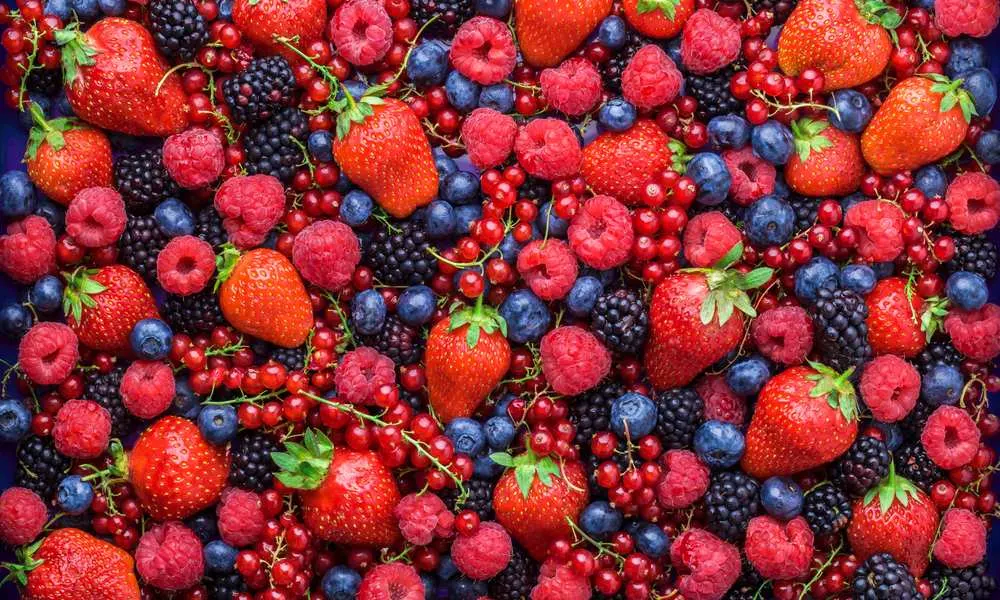
Berries Nutrition Chart
We’ve decided to give you 3 of the berries side by side, it should make it easier for you to properly balance and implement them in your guinea pigs diet.
| Blueberries 150g | Strawberries 150g | Blackberries 150g | |
|---|---|---|---|
| Calories | 84.4(353 kJ) | 48.6 | 61.9 |
| Total Carbohydrate | 21.4g | 11.7g | 14.7g |
| Dietary Fiber | 3.6g | 3.0g | 7.6g |
| Starch | 0.0g | 0.1g | 0.0g |
| Sugars | 14.7g | 7.4g | 7.0g |
| Total Fat | 0.5g | 0.5g | 0.7g |
| Protein | 1.1g | 1.0g | 2.0g |
| Vitamin A | 79.9IU | 18.2IU | 308IU |
| Vitamin C | 14.4mg | 89.4mg | 30.2mg |
| Vitamin E | 0.8mg | 0.4mg | 1.7mg |
| Vitamin K | 28.6mcg | 3.3mcg | 28.5mcg |
| Choline | 8.9mg | 8.7mg | 12.2mg |
| Calcium | 8.9mg | 24.3mg | 41.8mg |
| Iron | 0.4mg | 0.6mg | 0.9mg |
| Magnesium | 8.9mg | 19.8mg | 28.8mg |
| Phosphorus | 17.8mg | 36.5mg | 31.7mg |
| Potassium | 114mg | 233mg | 233mg |
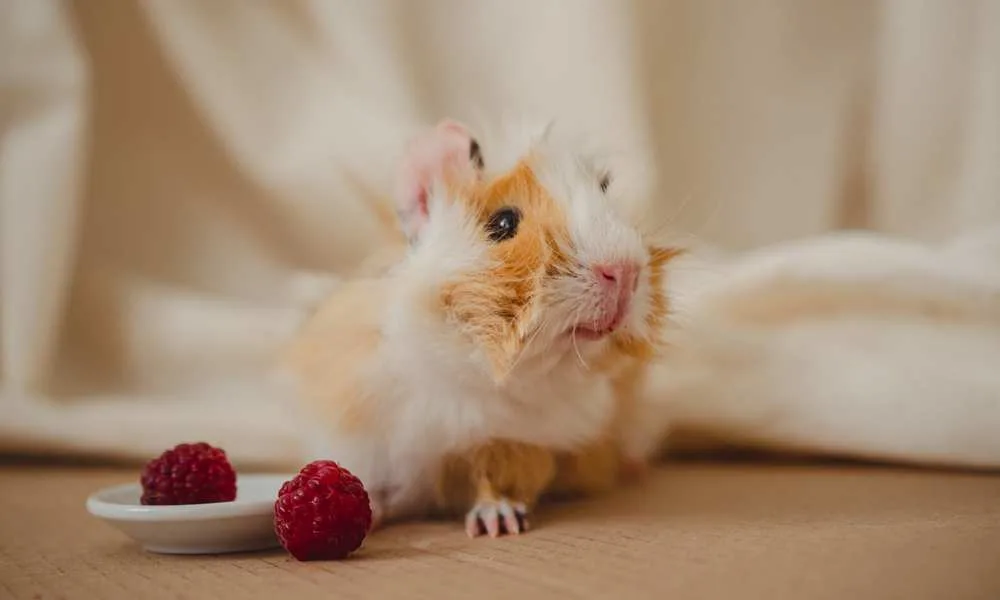
How Many Berries Can Guinea Pigs Eat?
This might be the most crucial question of the article. Just because we said that guinea pigs can eat berries doesn’t mean you should throw away all the other food and feed them with strawberries every day.
Around 10% of guinea pigs’ diet should be made up of vegetables and fruits. Everything else should be guinea pig food and hay. If you gave fruit or vegetables to your guinea pig and didn’t eat them after 24 hours, dispose of them to avoid any unnecessary stomach problems.
Guinea pigs need from 30 to 50mg of vitamin C daily. Berries clearly have a decent amount of vitamin C. However, we don’t recommend you give your guinea pig berries every day since berries have a lot of sugar. Berries should be considered an occasional treat.
If you don’t have any other option but to feed them berries every day, at least make the berries diverse. Don’t give them blackberries every single day.
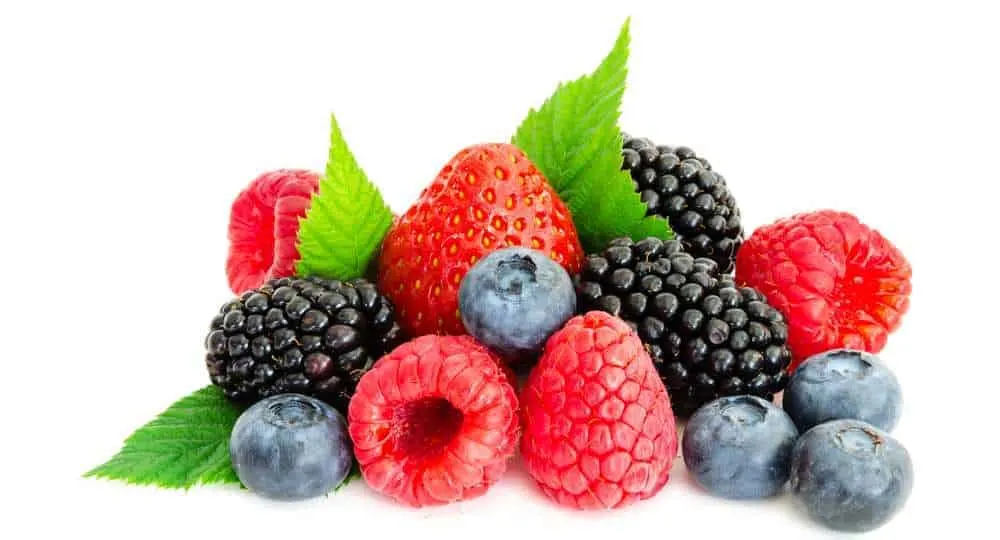
Health Benefits Of Berries
Two things to keep in mind when feeding your guinea pig are calcium and phosphorous. These are important for teeth growth and proper bone development. They even have an impact on the nervous system.
Some other berry health benefits:
1. Full Of Vitamins
Berries have a good amount of vitamins in them. Just like us, guinea pigs need vitamins to remain healthy.
Vitamin C is particularly important since, just like us, guinea pigs can’t synthesize vitamin C on their own and need to obtain it from other sources.
Vitamin C strengthens the immune system and protects your guinea pig from diseases.
Strawberries are particularly abundant in vitamin C; however, just like we mentioned earlier, they shouldn’t be fed to your guinea pig every day.
2. Good Against Inflammation
Berries are generally considered strong antioxidants and can reduce inflammation.
3. Glucose Maintenance
Berries, but also fruit in general, are great for maintaining healthy glucose levels in the bloodstream.
The reason why the sugar in the fruit is much less harmful than, for example, a snickers bar, is the dietary fiber that is in the fruit.
Dietary fiber helps the body metabolize sugar properly, thus maintaining proper glucose levels.
4. Good For Gut Health
The fiber that we’ve just mentioned also plays a part in keeping your guinea pigs digestive tract healthy.
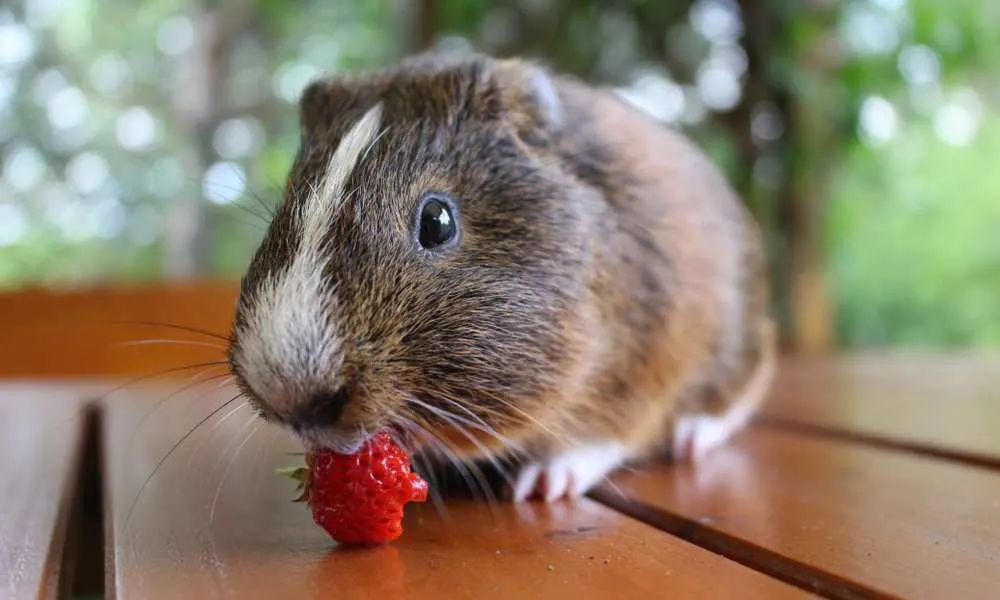
How To Feed The Berries To A Guinea Pig?
You’ve read the article and you’ve decided that berries are a way to go for your guinea pig.
Good for you. Before you do feed, give them berries, though, we’d like to give you some pointers on how to do it first. A very quick and easy guide.
- Thoroughly wash the berries before giving them to your guinea pig. The last thing you want is for your pet to ingest some pesticides or chemicals that could hurt it. Keep in mind, your pet is basically in “captivity” since it’s probably in its enclosure more or less the entire time. That means it isn’t as resilient as some of its non-domesticated counterparts, and it’s your job to keep it safe.
- If the berries are larger, cut them into smaller pieces to make it easier for your guinea pig to eat them. Berries can be a choking hazard, and naturally, you’ll want to avoid that.
- If it doesn’t like the berries you gave it, take them out of the enclosure so they don’t go bad and your pet only then decides to try them out.
How To Start Serving Them?
We don’t recommend going all out in the berry department out of the get-go.
Start small since there is a very (very, very) small chance that berries don’t sit well with your guinea pig. Start with one small berry of your choice, monitor how your guinea pigs behave for the next 24 hours after having eaten the berries.
Keep in mind, some guinea pigs don’t like berries, that’s fine, you can try some other fruit. If there’s nothing wrong with your guinea pig after 24 hours, go ahead and serve them a full portion.
A full portion is basically two, or three if you really want to indulge them, berries in one sitting.
Things To Watch Out For
Again, we can’t stress this enough, don’t go overboard on the berries, both in terms of quantity and frequency.
Although they’re full of a good kind of sugar, they can still make your guinea pig obese if you’re not careful. Also, overeating berries can lead to stomach upset, diarrhea, dehydration, etc.
In general, you want to avoid overfeeding your guinea pig, especially with sweets.

Conclusion
Guinea pigs can eat berries. What they can’t do is eat a lot of them in one sitting. Although it’s tempting to feed your guinea pig fruit and vegetables in large amounts, that isn’t any need for it and can actually be harmful to them.
Berries are a good option as an occasional treat if your guinea pig really likes them. Just follow the guidelines we have for you on how to serve them to avoid any unwanted effects.
Finally, we always recommend you do a fair bit of research and trial periods before giving anything to your pet, this will ensure their longevity and happiness.
Learn More: What Can Guinea Pigs Eat? The Complete Guide For Guinea Pigs Diet

